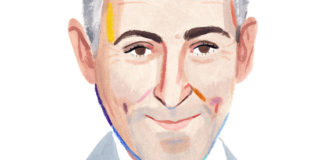In a constantly changing world of work, employee experience is key to building an interconnected and future-ready workforce.

Work is always evolving, and it has never changed as rapidly or completely as it is changing now. For instance, technology advances are shaping the world of work, and the Great Resignation continues to impact organisations even as the gig economy grows.
These factors, said Ruby Abrahams, Vice-President & Head, SAP SuccessFactors, SouthEast Asia, are compelling organisations to find new ways to solve labour shortages, address skills gap challenges, and recalibrate long standing work models to remain competitive.
Speaking at the SouthEast Asia HR Connect 2022 virtual event, he added, “These are changes no one anticipated but they create a collective opportunity to change how we think about work and care for our workers, and to change work for good.”
With employees calling for more autonomy to self-direct their career journey, and more support to improve their physical and mental wellbeing, Abrahams urged organisations to pay more attention to diversity, equity, and inclusion (DEI), and to create greater alignment between personal and company values.
“To put it simply, employee experience (EX) matters, and it matters not just for workers but also for businesses,” he said.
Picking up on the theme of change was Puven Nalatambi, Vice-President, Group HR, Taylor’s Education Group. Highlighting the role HR needs to play in leading organisational change, she said, “We need to prepare ourselves to become more agile, to embrace digitalisation, and to help create an environment for employees to work comfortably, happily, and productively.”
Part of a panel discussion that was moderated by Sujay Bhat, HR Strategy Advisor, SAP SuccessFactors, Asia, Puven also shared how Taylor is managing EX by looking to influence each touch point in the employee lifecycle.
“We want our employees to feel that they are being coached and they’re not left helpless. We want them to have a great experience, a great journey with us from onboarding until retirement, and we want to encourage them to perform to their best.”
For Vietnam’s Techcombank, technology has played a key role in enhancing EX across the organisation. Supported by SAP SuccessFactors, Techcombank’s technology platform has enabled leaders to improve communication with employees, and to make more informed people decisions, said Pratima Krishnan, Head of Learning and Development, Techcombank.
With Techcombank identifying three key pillars of digital, data, and talent development, the last of which is deemed as the most important, Pratima emphasised, “If technology is an enabler, what really matters is our processes, policies, and guidelines. We need to be very clear on what we are trying to achieve, who we are designing for, which employees are important, and what is the role of managers.”
Besides allowing Techcombank to streamline and digitalise processes, the SAP SuccessFactors system has also empowered managers to support employees’ upskilling and reskilling needs.
Pratima explained, “We believe in empowering our managers with information and processes that make them key supporters of their people’s development, retention, and traction. Right from our chairman and CEO, we have very strong support and a very laser-sharp focus on capability development and transforming people’s abilities.”
To better understand the workplace of the future, HR transformation remains a priority for many organisations, including TDCX, an IT service management company.
Having leveraged technology and data to be more productive and to better understand employees – ably supported by partners such as SAP SuccessFactors – TDCX is preparing to embark on their HR Innovation 2.0 in 2023, where they will look to implement, among other initiatives, a differentiation of EX to improve their employee value proposition (EVP).
Lim Chee Gay, Group CHRO, TDCX, said, “Our focus areas continue to be talent attraction, talent retention, and talent development. One area I want to call out is flexibility, which is why we have reimagined talent attraction, why we have ensured our processes are fully digitised, and why we are working to make sure we create a better candidate experience.”
“We also make sure that we adopt an agile mindset to change our roadmap where necessary and to have flexibility in everything we do, whether it’s about employment contract, working hours, or working locations.”
Click here to watch the on-demand video for SouthEast Asia HR Connect 2022 and learn about the best practices and innovative processes that will allow you to change work for good in your organisation.








